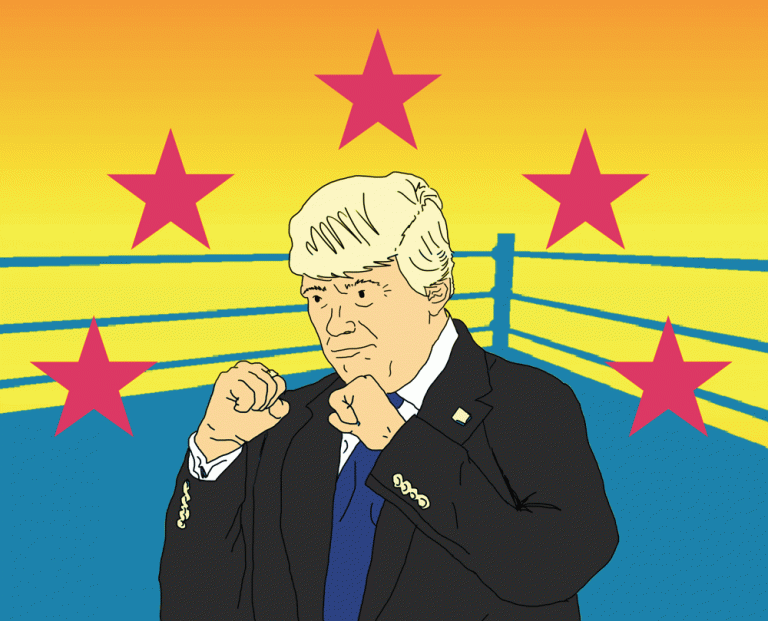
Jack Alegre
Staff Writer
When Meryl Streep critiqued then-President-elect Donald Trump at the Golden Globe Awards ceremony, the entertainment world was ecstatic. Here was a well-vaunted and well-loved member of celebrity society critiquing the soon-to-be most powerful man on the planet.
Streep’s comments certainly got a rise out of Trump and his supporters, with a bristling president-elect calling her “overrated” on Twitter. However, as well-received as her words were, did Streep’s comments change the minds of Trump’s supporters? Do any celebrities, for that matter?
There is no denying the power and influence that a celebrity wields upon (or against) the public sphere. One need look no further than the consumer sector where celebrity spokespersons often use their influence for product advertisements.
Another example would be Jenny McCarthy. One of the first celebrities to label themselves a vaccine critic, her actions brought national attention to the idea that vaccination leads to autism. Much like Streep’s criticism of Trump, her voice lent a sense of validation to an issue, assuring her fans that she shares the very same concerns regarding the safety of vaccinations.
And therein lies the problem: validation of opinion. In the political spectrum, celebrity endorsement of causes does little to sway opposing opinion, instead only serving to reinforce the opinions and prejudices of those who they already agree with.
The image of celebrities such as Scarlett Johansson, Ian McKellen, and Alicia Keys at the Women’s March was certainly a morale booster. However, it offers little to the “opposition.” The celebrities at the Women’s March were there to show their support and solidarity … with people who already agreed with them. Instead of reaching across the aisle to extend the olive branch, they gave the usual platitudes of enduring hardship and opposing oppression.
Attention drawn to famous figures is problematic because it shifts focus away from the agency of the masses in favor of a narrative of the wise and paternalistic elites sending their aid. Supporters of populism don’t want this pretension, they want their concerns to be addressed.
The problem with celebrities trying to use their star power for political issues, especially in this climate, is that they are fighting against massive anti-elitist sentiment. As much as alternate and extremist groups were responsible for Trump’s rise, it cannot be denied that Trump rose to power by utilizing resentment towards elites. Populist sentiment claims victory for the people by the people, and the people are already critical and deeply mistrustful of what they see as the whims and fancies from a Hollywood culture too far removed.
Is this mistrust justified? Of course not. However, just because a fear may be misguided does not mean that the root cause of the concern cannot be explored and picked apart. Consider the enduring image of Hollywood that pervades our media today: an intensely liberal atmosphere full of the wealthy and self-absorbed. Wanton and wasteful, a celebrity lives a life greater than any king past. At least that’s what the media makes it look like.
For many people, celebrities are too far removed from their own daily experience because of the wealth and fame given to them. They are on a different level and free from the more pressing “material” concerns such as paying for mortgage or health care or even finding a steady job. For a modern day foci of worship, only hatred or adoration can follow.
Celebrities then need to reorganize and pursue a new approach to getting their message across. To be ever vigilant and ever critical are laudable things. However, if they do wish for their political will to make an impact on the views of those opposed to them, they would do well to follow the example set by comedian Aziz Ansari. His ten-minute monologue on Saturday Night Live, while not capitulating or conciliatory, is important in the way it addresses political issues.
Didactic but not pedantic, Ansari did not stoke the fires of righteous fury but rather endorsed a revised version of national communication. He attempted to reach out to all Americans, saying that not everyone who voted for Trump was endorsing the KKK. The idea behind his monologue is that he attempted to reach out to people through empathy for common apprehensions, instead of the usual celebrity approach of impassioned calls to self-righteousness.
Ansari showed that a more nuanced approach to politics could be achieved not by searching for ways to blame the other side, but by recognizing the fears of people outside his bubble. Alec Baldwin’s sketches, funny as they may be, only serve the purpose of making Trump look like a fool. This is actually a provocation to his supporters who, in order to justify their votes—their agency—will dismiss the mockery as the actions of a scared and scattered liberal conscience.
The issue was never about whether celebrities should or should not fight for their beliefs and attempt to sway the public towards certain political ideals; they are entitled to that right. However, in today’s hypersensitive political climate, where insults are felt more acutely than kindness, celebrities are engaging in a Trumpian endeavor to build walls instead of bridges. Celebrities need to understand not just their own perceptions of injustice but the reasons for why injustices arose in the first place.










